Displaying items by tag: Luderitz Speed challenge
Sailrocket 'Smashes' World Speed Sailing Record
#SPEED RECORD - Weymouth-based sailor Paul Larsen and his crew have laid claim to a new world record in speed sailing, as BBC News reports.
The team say they achieved an average speed of over 59 knots - with a peak of 63.5 knots - on a half-kilometer run at Namibia's Skeleton Coast using their purposely designed Vestas Sailrocket 2.
Their speed "smashed" the previous record of 55.65 knots set by kitesurfer Rob Douglas in the 2010 Luderitz Speed Challenge, although it is yet to be confirmed by the World Speed Sailing Records Council.
It was the culmination of 10 years' hard work on the part of Australian-born Larsen and his team, using the specially adapted design built on the Isle of Wight - a vessel that's "very impractical in conventional sailing terms", as Larsen told the Times.
He added: "We are buzzing — no-one has done this with a sailing boat before... This shows how unique and revolutionary the boat is.
"We’ve had to break the boundaries of sailing — like the equivalent of our sound barrier — just over 50 knots."
The boat's designer Chris Hornzee-Jones said the vessel - inspired by the success of speed sailing kitesurfers and windsurfers like Oisín can Gelderen - was key to their breakthrough.
"It is designed to be an ideal testing platform for trialling new foil concepts which will allow us to break through this 'glass ceiling' and perform at speeds well over 60 knots.”
French Kite Surfer Sets New World Speed Sailing Record
French kite surfer Alex Caizergues set a New World Speed Sailing Record at 54.10 knots during his first run at this week's Luderitz Speed Challenge event earlier today in Namibia. (SCROLL DOWN FOR VID BELOW)
The event renowned for its super high winds also saw five new national records set. (see below)
The battle for the title of "the fastest speed sailor in the world" is far from over though with more big winds forecast in Luderitz this week and next it looks certain Caizergues new record time could yet be beaten.
Kite Surfing:
USA - Rob Douglas, 51.88
Namibia - Stefan Metzger 45.02
New Zealand - Gavin Broadbent, 50.93
French Womens National record - Charlotte Consorti, 45.23
Australia -Tim Pumpa, 46.78 (best kite speed record performance)
Windsurfing:
Sweden -Anders Bringdal, 44.80.
U.K - Zara Davis, 36.99, Female World performance with Production Board
Sebastien Cattelan from France is placed 2nd in the world speed sailing rankings at 52.33 knots.

























































